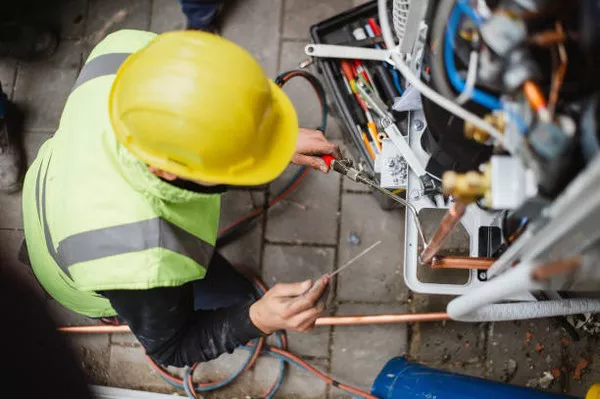A compressor is a vital component in various systems, ranging from air conditioners to refrigerators and industrial machinery. When a compressor malfunctions, it can lead to significant issues, including system failure and costly repairs. Recognizing the signs of a failing compressor early on can help prevent these consequences and ensure the smooth operation of equipment. In this article, we’ll explore the key indicators that signal a failing compressor and discuss the importance of addressing these issues promptly.
1. Unusual Noises
One of the most common signs of a failing compressor is the presence of unusual noises during operation. Compressors typically produce a consistent hum or vibration when functioning correctly. However, if you notice loud clanking, banging, or grinding noises, it could indicate internal damage or worn components within the compressor.
Grinding or Screeching Sounds
Grinding or screeching sounds often indicate friction between moving parts within the compressor. This could be due to worn bearings, damaged pistons, or a lack of lubrication. Ignoring these noises can lead to further damage and eventual compressor failure.
Banging or Clanking Noises
Banging or clanking noises may suggest loose or broken components within the compressor. This could include broken connecting rods, damaged crankshafts, or loose mounting bolts. Continued operation with these issues can result in severe damage to the compressor and surrounding equipment.
2. Reduced Cooling or Refrigeration Capacity
Another telltale sign of a failing compressor is a noticeable reduction in cooling or refrigeration capacity. If your air conditioner, refrigerator, or industrial cooling system fails to maintain the desired temperature despite normal operation, it could indicate compressor inefficiency or failure.
Inadequate Cooling
Inadequate cooling performance is often a result of reduced compressor efficiency. This could be caused by worn or damaged compressor valves, refrigerant leaks, or internal mechanical issues. Addressing these issues promptly is crucial to prevent further deterioration of the compressor and ensure optimal system performance.
Longer Cooling Cycles
If your system’s cooling cycles become longer than usual, it may indicate compressor inefficiency. A failing compressor struggles to maintain the required pressure levels, leading to extended run times to achieve the desired temperature. Monitoring the duration of cooling cycles can help identify potential compressor issues early on.
3. Increased Energy Consumption
A failing compressor often requires more energy to operate efficiently, leading to higher energy bills. If you notice a significant spike in energy consumption without any apparent changes in usage patterns, it could be a sign of compressor inefficiency or impending failure.
Overheating
Overheating is a common issue associated with failing compressors. As the compressor works harder to compensate for inefficiencies or mechanical problems, it generates excess heat. Monitoring the temperature of the compressor and surrounding components can help identify overheating issues before they cause irreversible damage.
Elevated Amp Draw
An elevated amp draw is another indicator of compressor stress or malfunction. Excessive amperage indicates increased electrical resistance within the compressor, often caused by mechanical issues or refrigerant-related problems. Regularly monitoring amp draw can help detect potential compressor issues early on and prevent system downtime.
Refrigerant Leaks
Refrigerant leaks are a serious problem that can lead to compressor failure if left unchecked. A sudden decrease in cooling capacity or the presence of oil spots or stains near the compressor could indicate a refrigerant leak. Promptly addressing and repairing leaks is essential to prevent compressor damage and ensure efficient system operation.
Oil Stains or Residue
Oil stains or residue around the compressor may indicate a refrigerant leak or internal compressor damage. Refrigerant leaks often cause oil to escape along with the refrigerant, leaving behind noticeable stains or residue. Identifying and repairing these leaks promptly can help prevent further damage to the compressor and associated components.
Reduced Refrigerant Levels
A sudden decrease in refrigerant levels can also indicate a leak in the system. Low refrigerant levels not only affect cooling performance but also place additional strain on the compressor as it attempts to maintain adequate pressure levels. Regularly checking refrigerant levels and addressing any leaks can help prolong the life of the compressor and ensure efficient system operation.
See Also Where Does Compressor Go In Pedal Chain
Conclusion
A failing compressor can have significant implications for the performance and reliability of various systems. By recognizing the signs of compressor failure early on, such as unusual noises, reduced cooling capacity, increased energy consumption, and refrigerant leaks, you can take proactive measures to address these issues and prevent costly downtime. Regular maintenance and prompt repairs are essential for ensuring the longevity and efficiency of compressors in air conditioning, refrigeration, and industrial applications.

